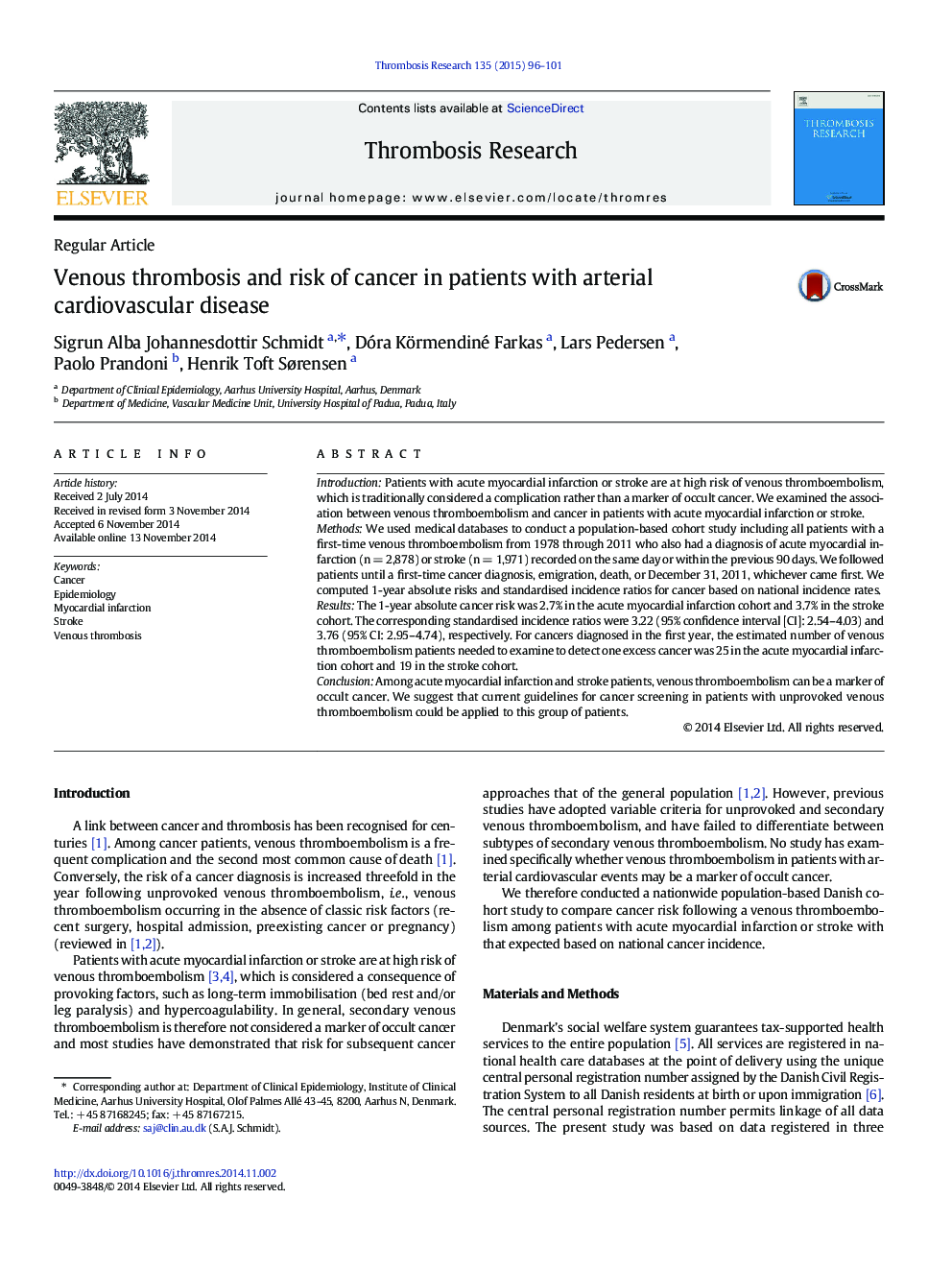| Article ID | Journal | Published Year | Pages | File Type |
|---|---|---|---|---|
| 3027112 | Thrombosis Research | 2015 | 6 Pages |
•Secondary venous thrombosis is not considered a marker of cancer.•Currently, work-up for cancer is not recommended after secondary venous thrombosis.•Venous thrombosis after stroke or myocardial infarction was associated with cancer.•Guidelines for unprovoked thrombosis could thus be applied to these patients.
IntroductionPatients with acute myocardial infarction or stroke are at high risk of venous thromboembolism, which is traditionally considered a complication rather than a marker of occult cancer. We examined the association between venous thromboembolism and cancer in patients with acute myocardial infarction or stroke.MethodsWe used medical databases to conduct a population-based cohort study including all patients with a first-time venous thromboembolism from 1978 through 2011 who also had a diagnosis of acute myocardial infarction (n = 2,878) or stroke (n = 1,971) recorded on the same day or within the previous 90 days. We followed patients until a first-time cancer diagnosis, emigration, death, or December 31, 2011, whichever came first. We computed 1-year absolute risks and standardised incidence ratios for cancer based on national incidence rates.ResultsThe 1-year absolute cancer risk was 2.7% in the acute myocardial infarction cohort and 3.7% in the stroke cohort. The corresponding standardised incidence ratios were 3.22 (95% confidence interval [CI]: 2.54–4.03) and 3.76 (95% CI: 2.95–4.74), respectively. For cancers diagnosed in the first year, the estimated number of venous thromboembolism patients needed to examine to detect one excess cancer was 25 in the acute myocardial infarction cohort and 19 in the stroke cohort.ConclusionAmong acute myocardial infarction and stroke patients, venous thromboembolism can be a marker of occult cancer. We suggest that current guidelines for cancer screening in patients with unprovoked venous thromboembolism could be applied to this group of patients.
